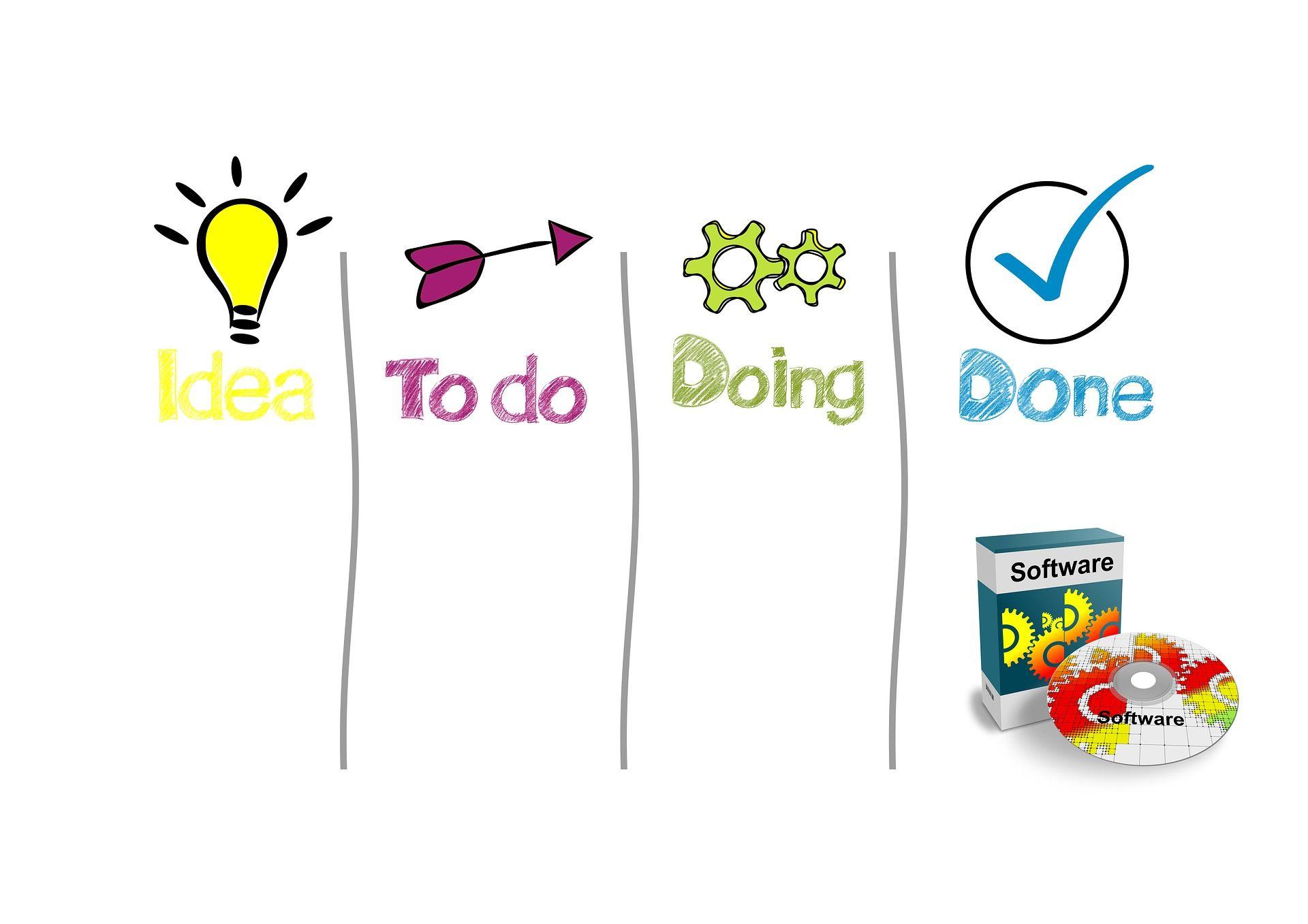What is Custom Software Development?
Custom software is a solution created by a team of programmers for the needs of a given business or enterprise. This type of software is adapted to the individual customer and meets their specific business expectations. Creating such a custom software requires thorough business analysis and understanding of customer needs. These two things are essential to create functional programs that will meet the expectations at a given moment. It will also enable them to introduce changes as the development of business needs.
In contrary to off the shelf software solutions, custom software development project is flexible and strictly corresponds to the customer's specific needs. It is built to streamline the work of its future users and have a real impact on the improvement of the company's business processes. Custom software solution enables implementation of functions that are often unavailable in ready-made programs created to fit many businesses, even from different industries.

Why Custom Software Development is Important?
Custom-made software is significant for your business from the point of view of business development, financial analysis and customer satisfaction. In the era of progress in digitization, customers raise the bar higher and higher. In order to develop custom software developers have to work quickly and flawlessly. Long gone are the times when most of the activities were performed manually in companies as today these things are done by machines, robots and good computer software. 'Good' software is the one that will make our work go efficiently and minimize the risk of errors. Additionally, such a computer software can save time, reduce costs and at the same time generate greater revenues for businesses. Although custom software development costs are certainly higher than buying a ready-made software solution, in many cases it would pay off anyway.

When Are Custom Software Solutions Needed?
Implementation of an effective and personalized computer software is necessary for companies which have to reduce costs and understand the necessity to make changes. Another key factor is efficient time management and therefore understanding the need to automate possibly as many processes in our company as possible.
It is important to identify the weaknesses in our business and which processes make us lose time. Perhaps it might be tedious data entry, document scanning, bookkeeping or maybe long and laborious counting stock levels. If you want to:
-
save time and money;
-
help your employees work more effectively;
-
automate processes;
-
gain the satisfaction of quickly served customers.
If you said yes to the above, it means that you should think of creating a software that is tailored to your needs. In many cases, the investment in such software repays very quickly.
Here are some examples of areas where tailor-made software brings quick benefits:
✅ human resources management - HR
✅ storage processes
✅ tracking deliveries
✅ production planning
✅ procurement management
✅ sales management
✅ client relations management
✅ accounting and finance management
✅ transport management
Custom Software Development Pros and Cons
It will not be an overstatement if we say that tailor-made software will be like a suit sewn just for us - it will fit us perfectly. However, it is necessary to take into account the financial matters and the period in which the investment in the software will start to pay for itself and start to bring us profits.
It all depends on the type of business for which the software is needed. Off the shelf solutions are created for a specific industry. If the services provided by the company are typical for the given industry, they do not need continuous improvement, introduction of changes and customization as the ready-made product may turn out to be sufficient. Commercial software can prove helpful in automation, which is usually a predefined process. However, as in the case of every ready-made product, it has limited options and requires the user to adjust to it.
Creating custom software is certainly associated with greater one-time expenditure but at the same time the benefits of it include customization opportunities, which make it more functional. Customized software is built for a particular customer and is adapted to their business needs. Before the custom software development even starts, developers thoroughly define the needs and key tasks of the software. Only after this stage is complete, functionalities are developed and preliminary specificity outline is formulated. In-depth business analysis is the key in the initial stage of work and allows you to enjoy a product that meets our expectations.
Creating tailor-made software also gives us much greater flexibility and scalability. We have a product that changes along with our business. Customized software is created to streamline the daily work of its future users and improve the company's business processes. It often has functions and solutions that are not available in commercial software.
We will work with you to create software that will change the work model in your company.
Benefits of Custom Software Development

Tailor-made software has a lot of advantages and one disadvantage - high initial costs. However, in the vast majority of cases such investment pays for itself quickly.
The most important advantages include:
-
Having the software what ideally meets our needs;
-
Shortening the time that employees spend on a particular task - increased team efficiency;
-
Possibility to continuously introduce changes to the program;
-
Software develops along with the development of our company;
-
Unlimited possibilities to expand the software;
-
Easy integration with other systems operating in the enterprise;
-
High security - tailor-made software is much less vulnerable to cyber attacks;
-
Access to technical support - practically any company developing custom software provides technical support and can help you in the event of problems;
-
Access to the code - by purchasing the software, we get access to the source code and we become its owner;
-
Possibility to automate many processes simultaneously.
What Makes Custom Development Successful?
The success of a given software largely depends upon the ability to collect business requirements as well as understand the company's needs and problems. Additionally, a clearly defined goal is a vital part of the process during which we form the project objectives.
Other significant factors are precisely defined requirements and open communication. Client should understand well what their expectations are in relation to the created product and be able to communicate them to the business analyst or programmers. If I had to say in one word what the success of software depends on, it would be good communication.
Software tailored to the company needs will supports its business processes. On the other hand, improper software solution can slow down company processes by providing valueless or distorted data. Comprehensive business analysis as well as communication are the key factors to success.

Custom Software vs Off the Shelf Software
In order to answer the question which one is a better answer to your business needs, you must first understand the goals you achieve. Once you know what will be needed, you should consider how much the idea will require customization and whether ready-made software solutions will not limit your capabilities. Lower prices have become a great incentive for many consumers.
Frequently, shelf offerings seem to be a good solution at first glance. Many producers selling this kind of products promise great customization opportunities. However, after purchasing a license and starting to customize the software to our needs, it turns out that we are dealing with a solution which in many places does not suit our business. There are companies that give us access to the code and the possibility of its modification. Nevertheless, it starts to generate costs and a patchwork of various modifications in code is a source of errors.
When considering purchasing tailor-made software, you have to take into account a higher initial price and longer implementation time. However, this will be compensated by having a program that meets our needs and is adapted to the changes taking place in our business environment. Custom software can be chosen when the modifications and additions to the off the shelf software begin to be too frequent and there are too many of them. Furthermore, when we immediately know that there is no product on the market that meets the needs of our business, custom software will be the most reasonable alternative. Developing such software would be more expensive, but you should remember that this is a product created for you only, which will fit like a perfectly tailored suit. You can also buy a suit in a chain store, but it will never fit you perfectly.
Best Practices for Developing Custom Software
In order to follow best practices of custom software development you need to take care of everything, monitor, document ... Which comes down to choosing a company which works in SCRUM and their development team will do it all for you. This methodology is one of the most frequently encountered in recent years and it gives a sense of great comfort for both the client and the developers working on the custom solution.
During the production of software, an essential issue is efficient operation. Punctuality and meeting customer expectations are absolute priorities that require methodical work of the entire team. Unfortunately, in the initial phase of the custom software development project, the client does not know what they can expect or want to build and implement all the functionalities at the same time. At this stage Scrum can be especially useful as this framework was designed to facilitate the implementation of processes, thanks to which the development team can create valuable products for the clients.
The Scrum process itself begins with the creation of a team of competent people with appropriate skills used during software implementation. The creative process is called a sprint - it should last from one to four weeks. Its task is to bring a new value visible for users. As a part of this stage, further points are defined which help to give the client a clear insight into each stage of the operation:
Sprint Planning - breakdown of tasks and classification of their priority. It is worth analyzing what is the most important to achieve and place the less important ones at the further position.
Daily Scrum - creating a time frame for individual tasks. Everyday meetings to check the status of the software development.
Sprint Review - plan consultation with the client or analysis of the operating product based on information from its users.
Sprint Retrospective - process analysis, used tools and introduction of possible additional modifications.

Thanks to SCRUM, the client knows exactly what is happening at each stage of the project and new functionalities as well as changes can be implemented on an ongoing basis.
It is also advised to conduct an in-depth business analysis and skillful testing of implemented functionalities. This will allow you to minimize the risk of errors.
See how we work in Scrum: We Work in Scrum! Our Team Has Completed a Scrum Guide Training.
What to Look for in a Custom Software Development Company?

When looking for a company that will build custom software for your business, you should remember these three basic things :
-
Get familiar with the company's offer - go to the website and find information whether the selected company offers the service you are looking for. Try to make an appointment and gather information on the possibility of starting a joint project.
-
Check whether the company has a professional approach - it can be verified already during the first meeting. Does the company pay attention to the interview? Does it accurately collect information? Is the communication good and if the company always responds to your messages? If the answer to the above questions is YES it means that you can expect professional service at a high level.
-
References and experience - this information is worth asking for. Try to get to know your potential service provider and find out as much as possible about their previous projects and their relations with customers. It is worth taking a look at the opinions about the supplier, e.g. on the Clutch portal, where you can find verified opinions that you can trust.



